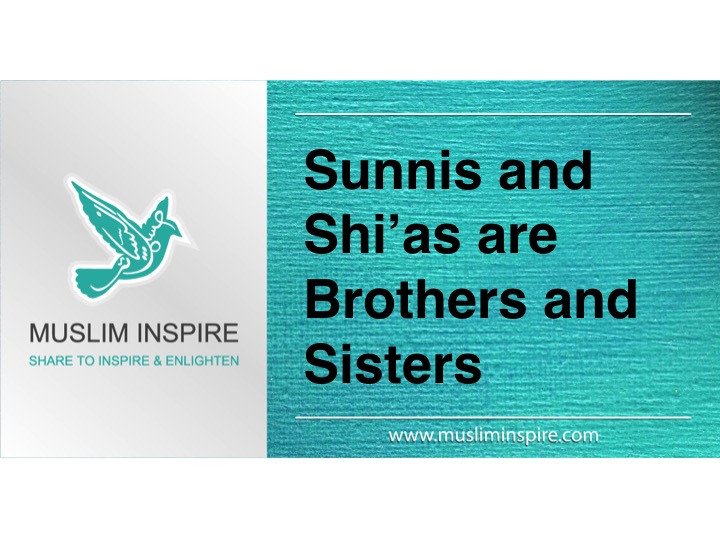There are no significant differences, nor disagreements, about the most fundamental and most consequential issues concerning both Islam and life.
It is no coincidence that Islam and life are bracketed here together, for Islam is an all-inclusive code of existence, while life, the way it has been created and is sustained by its Creator and Master, is what Islam universally stands for. The two are virtually synonymous.
Such existential issues are: the core precepts of Islamic ‘aqidah (faith or creed), principal worship rites, practices and services, general moral and ethical principles, family values, socio-economic justice and integrity, the inviolability and purity of human — especially Muslim — life, blood, property and dignity, architecture, urban planning and development, environmental protection, sustainability, safety, security, hygiene, and everything else that could be placed under the auspices of the notion of maqasid al-shari’ah (the purposes and objectives of Islamic shari’ah, namely, the preservation of religion or faith, life, lineage or future generations, intellect and property).
What normally transpires between us in the course of our routine interactions and dialogues seldom exceeds the level of ordinary and expected scholarly engagements. Though our discussions always take on a strong religious and philosophical penchant, our most profound disagreements normally do not.
It is only when we touch on certain highly sensitive and so, considerably overblown, misinterpreted and outright distorted historical episodes, political incidents and cases, military confrontations, as well as some sheer but overstated and rigid jurisprudential and minor ostensibly ideological and moral issues, which originated from, and feed on, the former, that our more serious disagreements start emerging and begin to show.
What does that mean?
That means, positively, that mainstream Sunnis and Shi’as (the latter’s above all moderate branches such as Twelvers, Imamiyyah or Ithna’ashariyyah, concentrated chiefly in Iran, Iraq, Azerbaijan, Bahrain and Lebanon, and constituting about 85% of the world’s Shi’ah population; and Zaydiyyah or Zaidism, found mainly in Yemen) are in principle all Muslims, together constituting the Muslim ummah (community). They are expected to enjoy all the basic rights, and discharge all the responsibilities, entailed in such an affiliation.
They are thus brothers and sisters, despite their plentiful political and religious differences and problems. They are to be awliya’, or friends, helpers, supporters and protectors of one another, as much, and as viably and reasonably, as possible because of the conditions. They are also to be hard and strong against their enemies and the enemies of their Islamic faith, while persisting as compassionate, kind and understanding among themselves.
Sunnis and Shi’as, by large, agree on most fundamental Islamic doctrinal (faith or ‘aqidah-oriented) and practical devotional aspects, which are underlined by both the Holy Quran and the Prophet Muhammad’s Sunnah as common denominators of one’s belonging to Islam and his or her being a Muslim.
They believe in the same God, Almighty Allah, His infinite Attributes and most beautiful Names, the same prophet(s), the same angels and the same Day of Judgment. They share the same Islamic worldview and ethical system. They read the same Quran, Allah’s final testament to all humanity, regarding it as mercy, a guidance for the people, clear proofs or signs, and the criterion or judgment between right and wrong.
They furthermore perform the same prayers, fast the same holy month of Ramadan, give away the same zakat and perform the same hajj (pilgrimage) to Makkah. They also face the same qiblah, that is, the Ka’bah or al-Masjid al-Haram in Makkah, and confront the same enemy, that is, Satan or Iblis and his large armies from the ranks of both the jinn and humans.
They are all proponents of Jihad (an all-encompassing struggle to defend and promote Islamic beliefs and values) and the concept of al-‘amr bi-l-ma’ruf wa al-nahy ‘ani-l-munkar (enjoining good and forbidding evil). As they champion the notion of love for those who follow Allah’s path and dissociation with those who oppose and work against it.
Lastly, they all aspire and do their best to secure the accolade of being Allah’s faithful and loyal servants, lavished in His love, gifted with His grace, showered with His immeasurable mercy, and, in the end, as a result, be admitted to His Paradise (Jannah).
What Sunnis and Shi’as generally disagree about, though often and in certain religious, historical and cultural contexts very important, is yet categorized as secondary, less significant and, at times, even utterly trivial subjects and problems.

